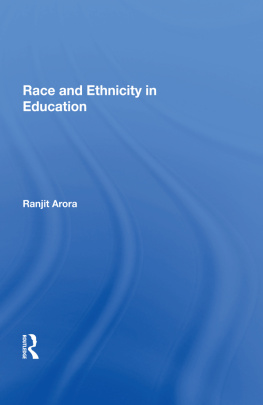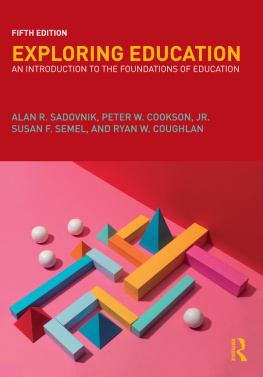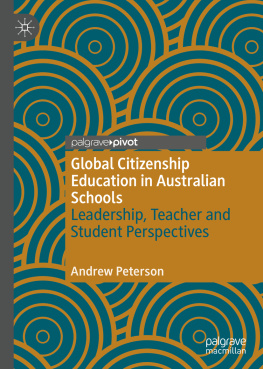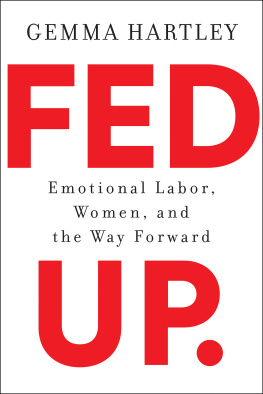RACE AND ETHNICITY IN EDUCATION
Monitoring Change in Education
Series Editor:
Cedric Cullingford
University of Huddersfield, UK
Change is a key characteristic of the worlds of business, education and industry and the rapidity of change underlines an urgent need to analyze, evaluate and, where appropriate, correct its direction. The series is aimed at contributing to this analysis. Its unique contribution consists of making sense of changes in education and in offering a timely and considered response to new challenges; the series, therefore, focuses on contemporary issues and does so with academic rigour.
Other titles in the series
Engaging and Changing Higher Education through Brokerage
Edited by
Norman J. Jackson
ISBN 0 7546 3148 6
Literacy and Schooling: Towards Renewal in Primary Education Policy
Kathy Hall
ISBN 0 7546 4179 1
Globalisation, Education and Culture Shock
Edited by
Cedric Cullingford and Stan Gunn
ISBN 0 7546 4201 1
Risk, Education and Culture
Edited by
Andrew Hope and Paul Oliver
ISBN 0 7546 4172 4
First published 2005 by Ashgate Publishing
Reissued 2018 by Routledge
2 Park Square, Milton Park, Abingdon, Oxon OX14 4RN
711 Third Avenue, New York, NY 10017, USA
Routledge is an imprint of the Taylor & Francis Group, an informa business
Ranjit Arora 2005
Ranjit Arora has asserted her right under the Copyright, Designs and Patents Act, 1988, to be identified as the author of this work.
Typeset by Get Set Go, Bordon, Hampshire.
All rights reserved. No part of this book may be reprinted or reproduced or utilised in any form or by any electronic, mechanical, or other means, now known or hereafter invented, including photocopying and recording, or in any information storage or retrieval system, without permission in writing from the publishers.
A Library of Congress record exists under LC control number: 2004012569
Notice:
Product or corporate names may be trademarks or registered trademarks, and are used only for identification and explanation without intent to infringe.
Publishers Note
The publisher has gone to great lengths to ensure the quality of this reprint but points out that some imperfections in the original copies may be apparent.
Disclaimer
The publisher has made every effort to trace copyright holders and welcomes correspondence from those they have been unable to contact.
ISBN 13: 978-0-815-39130-2 (hbk)
ISBN 13: 978-1-351-15088-0 (ebk)
Robin Richardson
The past said L.P. Hartley, is a foreign country. They do things differently there. Another novelist, William Faulkner, said: The past isnt dead and gone. It isnt even past.As we think about the subject-matter of Ranjit Aroras fine book, we are pulled backwards and forwards between these two views of history and of our times and spaces. Is Britain making progress, so far as the achievement of race quality is concerned? Or is it still gripped by the inheritance of Empire and by the vicious hostility towards not-white people that characterised the age of immigration, roughly 19451965?
Dr Aroras book explores these questions through discussion of the education system in general and of the training of teachers in particular. What is the role of a countrys education system in combating racism and helping to build a more decent, just and inclusive society? Within this context, what is the role of initial teacher training (ITT)? These are the questions with which the book is centrally concerned.
A cynic, paralysed by disappointment and despair, would say that the education system can do little and that ITT can do virtually nothing. The key actors, a cynic would continue, are the government and media on the one hand and individual schools, and perhaps local authorities, on the other. ITT, compared with the principal actors, is marginal, even a bit of a joke.
An alternative view, articulated at length and with passion throughout this book, is that ITT is pivotal. Here is where, the book argues, extremely important changes may take place. Young people contemplating joining the teaching profession are faced here with searching questions about their own role and identity. If they are white, they probably have to question deeply-held notions of Britishness, whiteness, Empire and national identity. Helping and supporting them requires great sensitivity, expertise, sympathy and professionalism from their tutors and lecturers. If they are not white, they are faced with no less searching questions about identity, responsibility and role, and their tutors and lecturers are no less challenged to develop their understanding, courage and skill.
If personal change and commitment in young teachers preparing to enter the profession were the only achievement of ITT it would be, though substantial, not enough. For it would take 20 or more years before those young teachers were in positions of seniority and power. ITTs potential contribution is also that of a demonstration project, showing the wider education system how personal and professional change take place.
Ranjit Aroras book magisterially recalls the difficulties, dilemmas and debates that have taken place in ITT over the last 20 years or more. It notes soberly that ITT is no panacea. It shows also, however, ITTs pivotal role and the dignity and duties of those who are engaged in it.
Chapter 1
Quality and Equality in Education
David Blunkett in his introduction to the consultation materials for changes to the National Curriculum in England recognised that the Macpherson Report had placed a particular emphasis on the role of curriculum in encouraging children to value cultural diversity and in combating the development of racism. He has also made a very clear statement that, Teachers individually and collectively have to reappraise their teaching in response to the changing needs of their pupils and the ideas and attitudes of society and economic forces.
The rationale for this book is located in the need for the preparation of teachers through initial teacher education and practice in schools with regard to education with an anti-racist perspective. It explores the relationship between professed commitment, to increase the number of minority ethnic teachers, and the consistent failure of training institutions to recruit and train teachers from minority ethnic groups. There is considerable evidence that preparation for teaching in a multicultural society has not received adequate attention by training institutions. With some exceptions, developments of appropriate courses have often been ad-hoc and dependent more on individual enthusiasms, circumstances and locations, rather than on any systematic efforts on the part of training institutions. It is more than 15 years ago, when the Swann Report, Education for All (1985) identified the growing need for research into the recruitment of teachers from minority ethnic groups. It also highlighted some teacher training institutions with a particular expertise in the preparation of teachers for education in a multicultural society. More than 15 years have passed since a CRE survey (1988), several HMI reports and DES consultation documents also noted the virtual absence of minority ethnic teachers in British schools and identified the relatively small number of institutions that positively recruit minority ethnic students on their teacher education courses.







